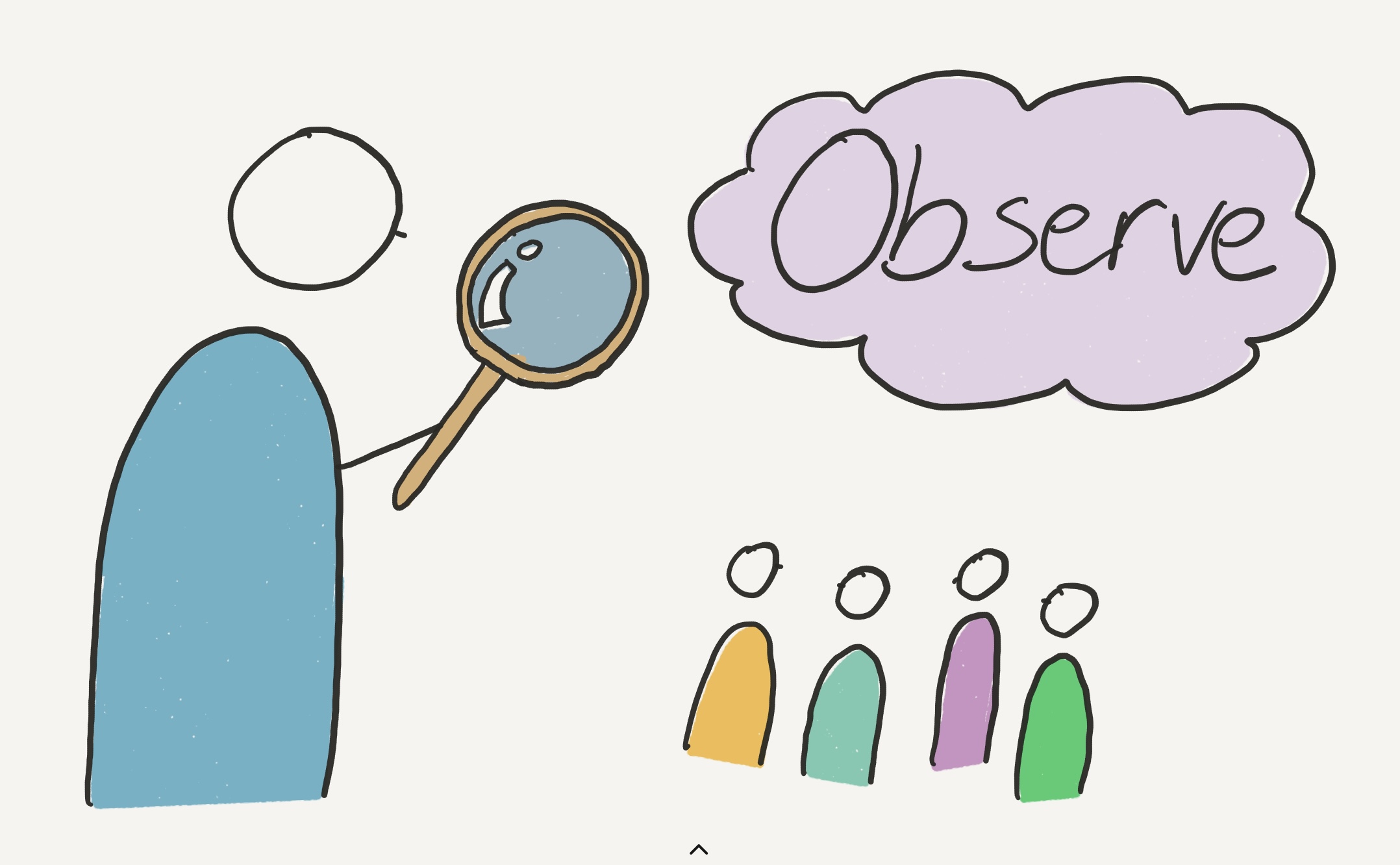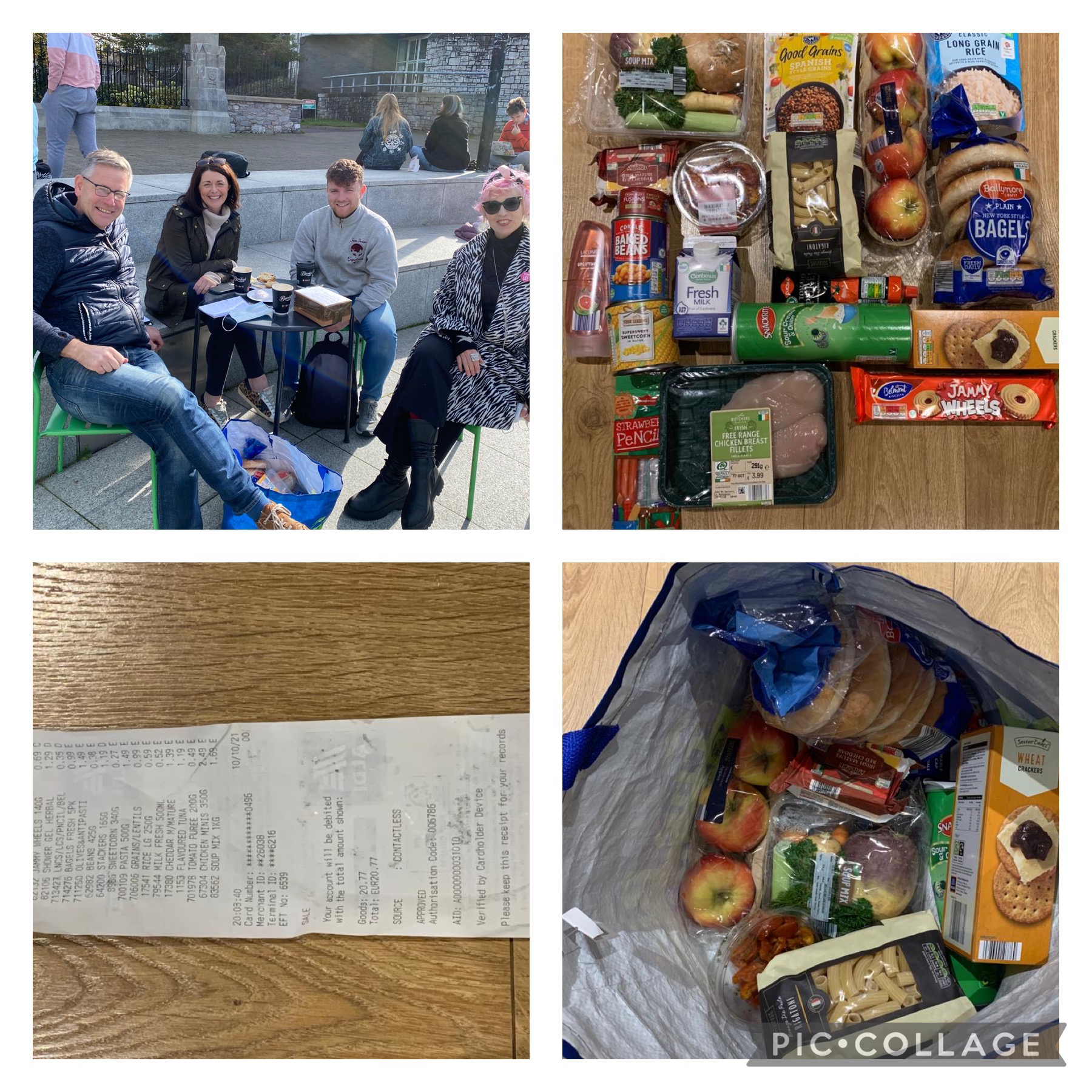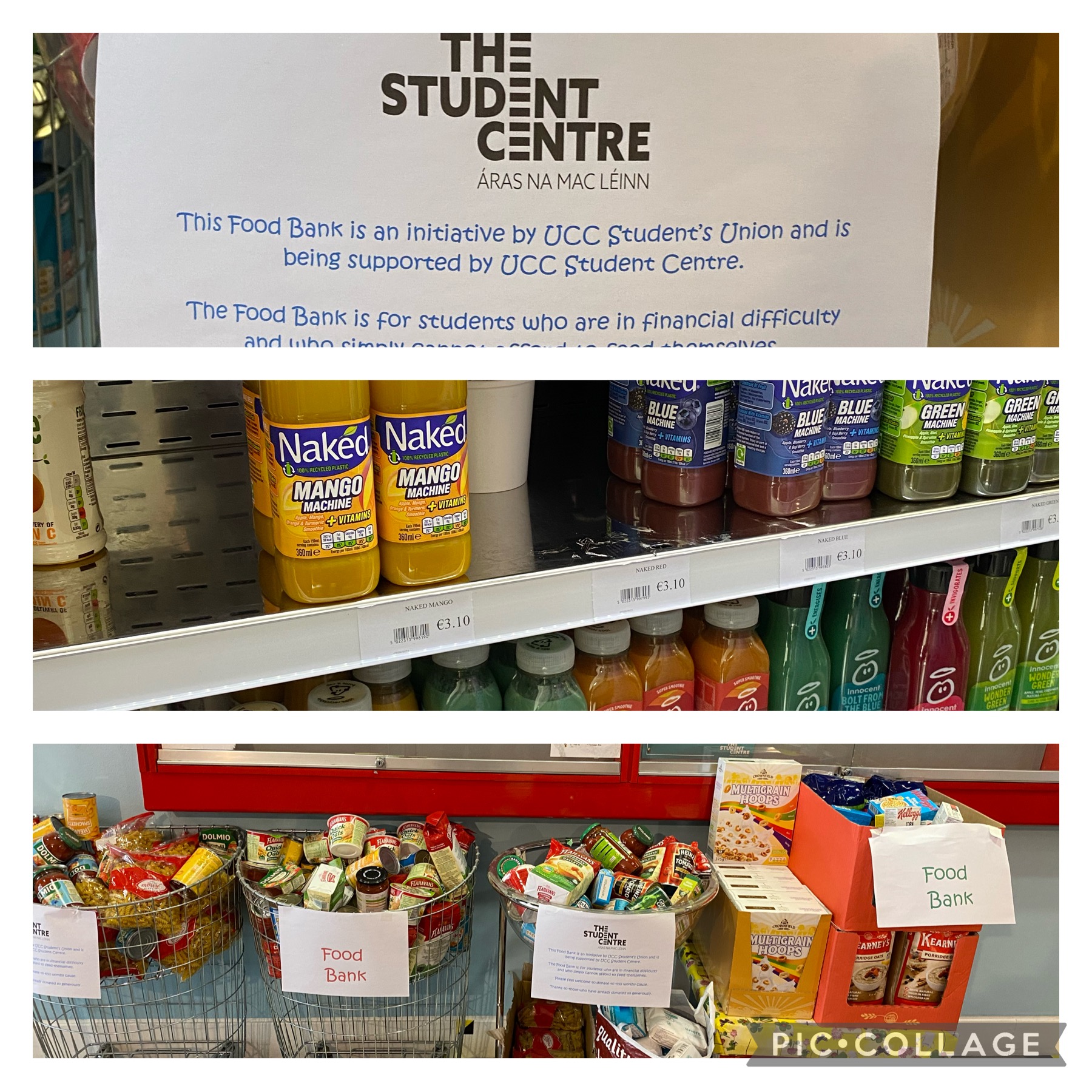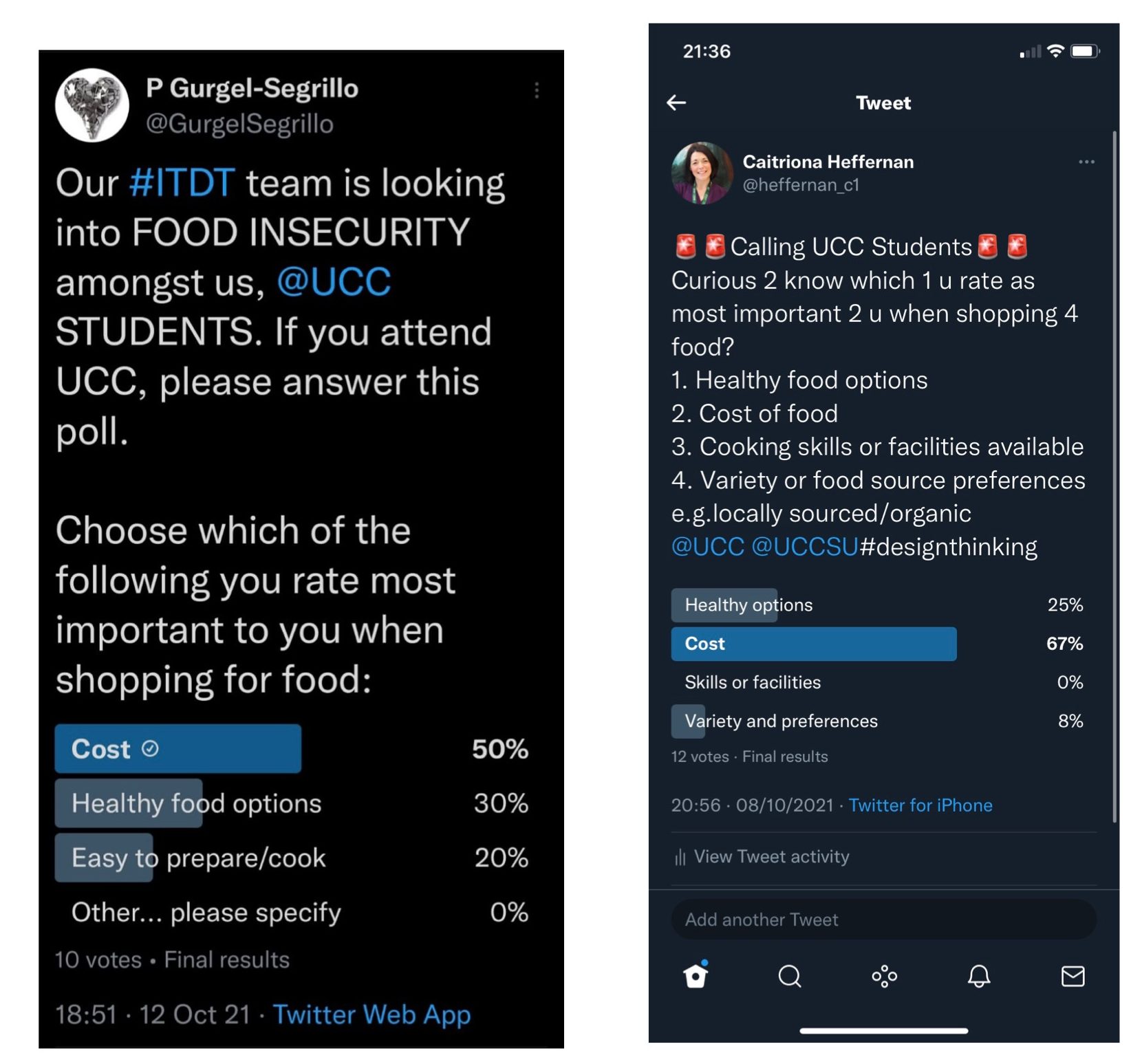Observe
Caitriona Heffernan

Observe
Preparing, Ethical considerations:
There was a universal acknowledgement of the sensitive nature of our subject matter. This shaped how we engaged with our stakeholders/end users in an effort to gain our required observations (Hesketh, 2016). Hesketh recommends attempting to collate existing information in order to avoid unnecessary exposure and distress to user groups.
In an effort to minimise distress or harm to our focus group we divided our observation target areas into two categories;
1. Students potentially experiencing food insecurity
2. Those supporting students potentially experiencing food insecurity.
Not only was this an attempt at a more sensitive and supportive approach to gaining information but it also allowed for data source triangulation (Carter et al., 2014). This was achieved by collecting related data from a number of different sources and obtaining some diversity of perspectives. This helped us to validate our data in anticipation of the ‘Point of view’ phase.
Models of information collection:
The group employed a number of different methodologies for data collection including informal interviewing, the use of online polls, questionnaires and adapted models of situational interviewing and photo-elicitation (Doyle, 2019) (Glaw et al., 2017).
See photos below for a flavour of the fieldwork undertaken:
Our visit to campus to carry out interviews:

Our visit to the Student Union Food Bank supports

Online Polls

Campus Observation Visits

Reference considerations during the observe phase: (Trimboli, n.d.) (Queirós et al., 2017)
